Plummeting Oil Prices and Its Impact on the Shipping Industry
Well, most of us have read about the drastic drop in oil prices in the recent months. While a cool down in the oil prices certainly augured well for the economy in general, many of us were left thinking what might be the reason for this drop in oil prices and its impact on the Shipping Industry. After all, a drop in oil prices from the dizzying levels of almost 150 dollar / barrel to talks of prices dropping to abysmal lows of 20 dollars / barrel must have strong reasoning.
In this article, we try to figure out the various causes for this continued drop in the price of Crude Oil and its likely impact on the Shipping Industry.
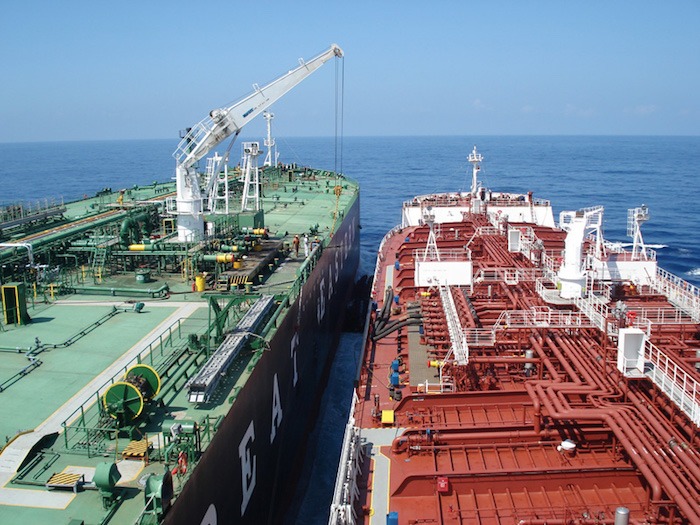
However, before we begin, we need to know a little bit about Shale Gas and the Organisation of the Petroleum Exporting Countries better known as OPEC.
The official OPEC website defines itself as “ a permanent intergovernmental organization of 12 oil-exporting developing nations that coordinates and unifies the petroleum policies of its Member Countries and ensures the stabilization of oil markets in order to secure an efficient, economic and regular supply of petroleum to consumers, a steady income to producers and a fair return on capital for those investing in the petroleum industry.”
In layman terms, OPEC is simply a Cartel of twelve member countries (Algeria, Angola, Ecuador, Iran, Iraq, Kuwait, Libya, Nigeria, Qatar, Saudi Arabia, the United Arab Emirates and Venezuela) which controls oil prices. For lack of a better term, think of it as a group which controls the movement of oil thereby giving it tremendous clout in fixing oil prices. For eg. If OPEC decides to increase production, the price of crude oil will drop owing to oversupply in the market. On the contrary, if OPEC decides to cut production, the prices will spike up. OPEC has such significant impact on the shipping industry that Lloyd’s List recently named it as the third most influential factor in Shipping led only by the Chinese Premiere and the Maersk Group CEO. As with any big organisation, OPEC is dominated by its most powerful and influential member – the one which has maximum oil resources. No prizes for guessing this one – it is none other than the Kingdom of Saudi Arabia. It is interesting to note here that OPEC also includes the Islamic Republic of Iran, the Kingdom’s biggest rival both ideologically and in terms of oil wealth.
Now let’s briefly talk about Shale Oil. Shale Oil is a relatively new discovery which is produced by a process called fracking (blasting underground rocks with a mixture of water, chemicals and sand). The Shale Boom is being spearheaded by Saudi Arabia’s long-time friend and ally The United States of America. The potential for Shale Oil is so much that America has now surpassed Saudi and Russia to become the biggest producer of Oil.
However, there is one catch in Shale Oil. It takes significantly more money to extract one barrel of Shale Oil than it takes to extract one barrel of conventional crude oil. To give you an example, Saudi Arabia requires about 5-8 USD to extract one barrel of Crude Oil. But it takes more than USD 25 to extract one barrel of Shale Oil.
Now armed with this background information, let’s try to understand the probable causes for this continued drop in Crude Oil Prices
1. Geopolitics: Two of Saudi Arabia’s biggest rivals are Russia and Iran. The economy of both these countries almost entirely depends on oil revenue. With the regime change in Iran, the Americans and the rest of the western countries are indicating a thaw in their relationship with Iran. There is every indication that the embargo and sanctions on Iran will be lifted soon. The Saudis see Iran as having significantly more influence in the Persian Gulf region in recent years than it used to. The ISIS conflict in the region has only helped Iran to become a key regional player. The Saudis will do whatever it takes to thwart Iran in its tracks and maintain its regional dominance. Crippling Iran’s economy is the best way to do it without a military conflict.
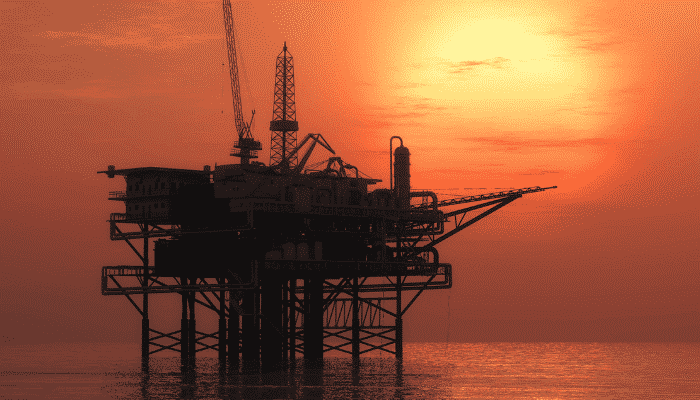
On the other hand, the Russians are already reeling under heavy economic sanctions imposed on them following the Ukraine crisis. The Saudis feel that this is the perfect opportunity to strike a body blow.
This is the reason that the Saudi controlled OPEC has steadfastly refused to cut down production which could have pushed oil prices higher up. Now one might wonder how Saudi Arabia is going to sustain such low oil prices themselves. After all, the kingdom’s economy is also almost entirely dependent on oil revenue. However, the Saudis can easily sustain these prices at least for the next few years. They have upwards of 900 Billion USD in reserves. The Saudi Oil Minister Ali al-Naimi recently, rather crudely, boasted that the kingdom wouldn’t let OPEC cut down production even if the oil prices fell to 20 USD. All this just goes to show the Saudi resolve in riding out the storm at the expense of other key players.
2. Shale Oil: As discussed earlier, the Americans are the biggest producers of Shale Oil. America has far more sources of Shale Rocks than any other country. So much so, that it is believed that America might completely stop importing oil in the near future. However, they have one big problem with Shale Oil. Extracting Shale Oil is a relatively complicated process and the resulting cost of producing Shale Oil is significantly higher than conventional oil. So the American Oil Men have to rely on banks to lend them money which is used to extract this oil. The banks in turn hedge this lending risk on the price of conventional oil. So if the price of Crude Oil drops, lending the money becomes riskier for the banks. As a result, banks stop lending, thereby crippling the Shale Oil production.
The Saudis are trying to nip the Shale Boom in the bud before it threatens their energy hegemony. They want to squeeze out all the American oil men who are investing in Shale energy.

3. Weak Economy: The demand for oil hasn’t been at a rate which was projected after the world economies started to recover. Europe’s revival is still in doubt following Greece’s change of government. Some of the developed countries are moving towards greener energy. And although there is no indication of a cool down of the Asian powerhouses, India and China are not consuming as much oil as was earlier projected. All major hoarders are treading cautiously fearing a meltdown similar to the recent one. All this has produced an oversupply in the market, pushing prices down.
Impact on The Shipping / Tanker Industry
Now let’s briefly discuss how such low prices would impact the Shipping Industry.
1. Bunker Prices: The biggest component of money required to run a ship is spent on bunker fuel. Even a couple of tons of fuel saved each day will have a significant impact on the bottom-line of a shipping company. So imagine how much a shipping company is now saving with the bunker prices more than halved.
To put things in perspective, here is a list of Bunker Prices in the top four bunker ports in the world as on Feb 2nd 2015.
| Port | IFO380 | |
| Singapore | 289.00 | |
| Rotterdam | 246.00 | |
| Houston | 269.50 | |
| Fujairah | 293.00 |
Above prices for Bunker Fuel IFO 380 grade are in USD / Ton. Source : Bunkerworld.
Just over a year ago, the average prices of Bunker fuel was more than 650 USD / Ton. Without a doubt, these are massive savings for shipping companies.
More Savings = More Profits
More Profits = Higher Salaries / More New Buildings / More Job Opportunities
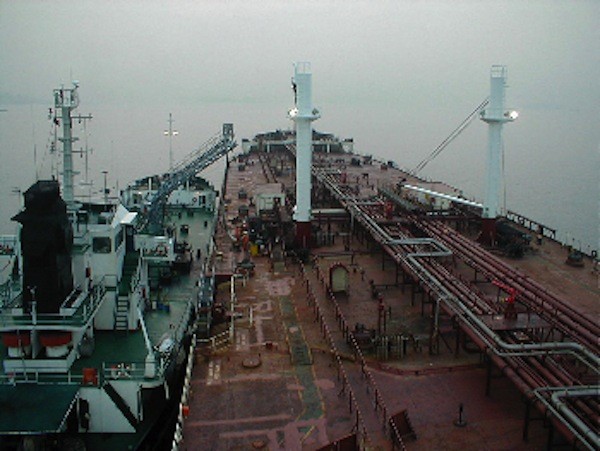
2. Higher Freight: Those Tankers which were “awaiting orders” off Fujairah have all disappeared. No longer do you see vessels “super slow steaming” as often as you used to. When the prices of oil change, there is bound to be an increase in the movement of cargo. With the oil prices dropping, the dormant tanker industry has suddenly come to life.
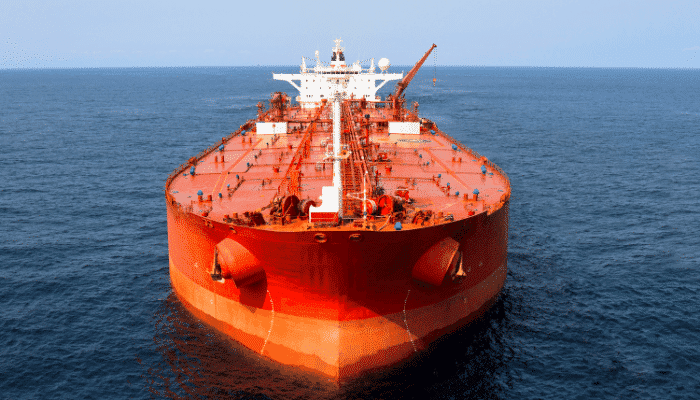
Investors, Speculators and Traders have all been busy buying and selling oil. A loaded passage is the business end of the voyage for a tanker vessel. The increased movement of cargo has resulted in higher freight rates. The Ship Operators are now in a demanding position and calling the shots.
Again,
Higher Freight Rates = Higher Profits
Higher Profits = Higher Salaries / More New Buildings / More Job Opportunities
3. Consolidation of Positions: With shipping companies shoring up their bottom lines and revenues, the next step is to increase productivity. In the shipping world, this is achieved by buying more vessels and upgrading the existing fleet. Higher revenues from low bunker prices and higher freight rates have enabled shipping companies to divert significant funds for purchase of new buildings and second-hand vessels. There is fervent buying and selling activity in the Sale and Purchase segment of the business.
Companies are positioning themselves for maximum impact and to consolidate existing positions. Helped by low bunker costs and high freight rates, the purchase of VLCCs by Euronav has seen the company’s profits reach record levels. It has also enabled it to become one of the leading VLCC operators in the world from being a relatively unheard of company less than a year back. Likewise, Maersk Tankers has positioned itself as a specialist Product Tanker company betting on clean – refined products over dirty petroleum oils. In the years to come, such strategic decisions done in the current healthy market will prove to be the foundation for a solid future. Several other operators such as Teekay, Shell and Frontline are making efforts to consolidate positions and carve out a niche for themselves in the vast industry.
4. Expect More Storage Tankers: This has already been set in motion. Several traders are chartering tanker vessels for long term storage in the hope that oil prices will spike soon and they will make a profit on the oil which was purchased at low levels. If you are someone sailing on tanker vessels, there is a likelihood that you might have to join one of such vessels soon. So be prepared for those long and boring anchor watches.
Oil is not called the Black Gold for nothing. Petroleum politics has always dominated the Middle Eastern polity and has rightly been the subject of many epic movies (There will be Blood, The World is not Enough, Syriana, etc). There have been innumerable allegations and counter allegations about the use and abuse of petrodollars. No matter how many alternate energy sources are discovered, it is undeniable that oil will continue to remain the primary source of energy for at least several more decades to come. There is absolutely no doubt that the current drop in oil prices is only a short term phenomenon and we will soon be discussing the reason for the sudden spike in oil prices. Until then, let’s just relax and not lose sleep over the car’s mileage or in us seafarer’s case – the darn bunker consumption.
Disclaimer: The views expressed in this article are those of the authors and do not necessarily reflect the position or policy of Marine Insight. Data and charts, if used, in the article have been sourced from available information and have not been authenticated by any statutory authority. The author and Marine Insight do not claim it to be accurate nor accept any responsibility for the same. The views constitute only the opinions and do not constitute any guidelines or recommendation on any course of action to be followed by the reader. Assumptions made within the article are not reflective of the position of Marine Insight.
Do you have info to share with us ? Suggest a correction
Related Posts
Subscribe To Our Newsletters
By subscribing, you agree to our Privacy Policy and may receive occasional deal communications; you can unsubscribe anytime.







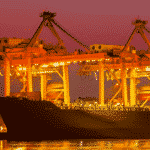






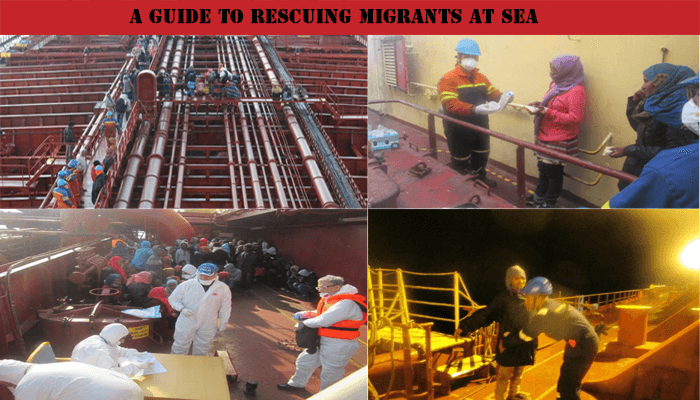

It is true that the US has surpassed the KSA as the biggest producer. But the quality and effectiveness of Shale Oil is still a big question mark. It goes without saying that conventional energy cannot be wished away but we need to do more in renewable energy for a better tomorrow.
Nevertheless, a well researched and refreshing article.
With some really good topics on the website, I had a suggestion of including the latest ILO norms for seafarers medical requirements. Also a discussion on how MLC convention is helping in getting seafarers better living and working conditions would be a better topic in the coming days. Thanks and keep up the good work !!
This article makes wonderful reading. However, I differ with the writer’s views on Higher Profits = Higher Salaries. Shipping companies are not investment banks to transfer profits to their employees. Apart from a few companies like BP, Shell, Chevron, Maersk and Teekay, I doubt if any other company pays bonus payout to their Captains and Chief Engineers. Perhaps it is time to learn from these savvy banks how to go about things.
please include more such articles. also request more on ship biz.
A lucid and well presented article. However, Tankers are not the whole shipping industry and it is clear ship owners will benefit from reduced bunker rates. There is no mention of the impact of the current status quo on OSV, PSVs and AHTS vessels.
As a result of the political brinkmanship of the OPEC countries, oil companies are reducing or delaying exploration and production projects. This is leading to further vessel over-supply and reduced charter rates that in turn leads to lay-ups and redundancies of seafarers as the opportunities for these vessels contract.
Bourbon offshore and Farstad have recently laid-up vessels and have begun to adjust their crew numbers accordingly, and Maersk recently announced 120 redundancies mostly from Maersk Drilling with a reduction in shore-staff from Maersk Supply Service.
Lean times ahead for all involved in offshore oil production but opportunities for those positioned (and positioning) to take advantage of the squeeze being experienced, especially by older tonnage.
Good point there Jason. Thanks for your views.
Thank You Team@Marine Insight. This article certainly helped in clearing the various doubts as to why oil prices are on the downward movement. Well researched article. Some info as to increase in new building activity may not be entirely feasible, as we all know what comes down has to go up again. So OPEC may play a hard bargain until achieving the safer limits and then do the GeoPolitics v/s Petro Dollars game again. Nevertheless if there is a lower freight for the end users , it will be a big boon for the sagging economy plus as rightly said ships need our capable MEN & Women to navigate to the safer destinations and some incentives in addition to the pay package will be a good move. By all this falling oil prices, are we expecting any lower pricing w.r.t. various consumables/edibles/pulses etc. IT does not happen, As a common man not much tangible benefits.
Very good article but reflects only part of the impacts in oil prize drops
The real losers are countries with heavy investment in expensive technologies in oil industry like UK , Norway , The Netherlands etc particularly in deep waters where the return of the investment will be negative
The North Sea oil industry is on the verge of collapse and that will hit not only the OSV market but all divisions
Very interesting article. Made me rejig my whole understanding of the oil business.
Dropping down oil prices left adverse impact on offshore as Mr Jason also describe above so how long this gonna be and how about offhosre shipping jobs with cutting down salary..please give some article about any hope for good days to come in offshore shipping jobs..
Top article. Fantastic analysis. But wonder why the author chose to write about only the Main Fleet. Offshore industry forms a major chunk of the overall shipping industry.
Jesus! This article makes so much sense.